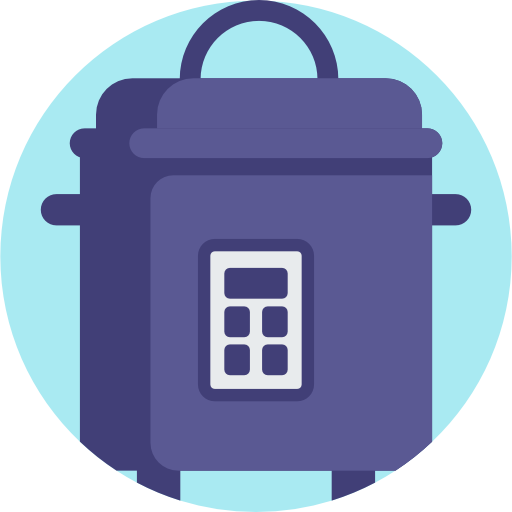Start selling coffee online.
Right Now.
Save time setting up and "selling".
Focus on producing great coffee instead.
Selling coffee online is easy.
In fact it's never been easier.
Unfortunately it's not quite easy enough that anyone could jump in and do it in just a few days without any help.
This why many aspiring entrepreneurs and coffee shop owners end up having to pay consultants or developers to build their business online.
This website was built to make it possible for you to get an online business selling coffee up and running in just a few hours, completely on your own.
The next few sections will show you exactly what you need to know to build a an online coffee business:
- What you need to know about coffee and roasting.
- What you need to learn about coffee as a business.
- Data and insights on the profitability of selling coffee.
- Common challenges associated with selling coffee online and how to overcome them.
- How to start an online coffee business (step by step guide).
- FAQs on selling coffee online.
If you're looking to make money selling coffee online you'll love this walkthrough.
Coffee Roasting
Understand the basics. Learn the fundamentals of what goes into a quality coffee roasting process so you can make smarter decisions about coffee procurement.
What You Need to Know About Coffee Roasting
Coffee might not be exactly what you think it is. In fact coffee beans aren't even technically beans.
Coffee, the beverage so many know and love, is made by roasting the seeds found in the berries of some types of "Coffea" plants and trees. The two most common plants used are Coffea arabica (Arabicas) and Coffea canephora (Robustas).
Coffea trees grow best in mild temperatures and need frequent rain to thrive. The average coffee tree can yield roughly 0.9kg of coffee beans per year.
The fruit from those trees is almost always handpicked and the seeds are extracted.
And so we've come to refer to those seeds as "coffee beans", and they provide the first ingredient needed to make coffee.
Why do we Roast Coffee Beans?
The first thing you need to understand if you're interested in selling coffee beans, is coffee roasting. Even if you're not interested in making or roasting your own coffee, you will need to have some idea of the basics involved in roasting coffee beans, so let's explain:.
Coffee beans yielded from the berries of the Coffea trees are typically green in color but don't really have the same taste we traditionally associate with coffee.
What does give coffee it's characteristic taste?
In short, it's the "Maillard" reaction, named after the French doctor who discovered the phenomenon, which is a sequence of chemical reactions brought about by coffee roasting that ultimately gives the coffee its flavour and color.
How is Coffee Roasted?
Technically small batches of coffee can be roasted in something as simple as a metal pan, but most coffee is roasted with commercial equipment. Large batches are typically roasted with drum or hot air roasting machines.
How Roasting Impacts Flavor.
Coffee, regardless of how it's brewed, prepared (espresso, latte, etc..), or served is almost always dark brown in color, at least somewhat bitter, and caffeinated (unless caffeine is intentionally removed).
In contrast, the flavour of the coffee beans can vary significantly and that will change as the roast develops from light to dark. Stopping the process earlier will result in a light roast and the coffee will tend to taste more acidic. A dark roast will yield oily black beans with with the less acidity and more bitterness.
Understanding these basics of roasting and how it impacts flavour is critical for anyone wanting to sell coffee. You can explore partnerships with existing coffee roasters and collaborate to produce a blend that is unique, invest in your own commercial equipment to do it yourself, or simply retail someone else's already defined roast - but in all cases you'll need to know some of the fundamentals.
Becoming an Expert in Coffee
If it happens that you don't know much about coffee, then we would recommend exploring our ultimate guide to coffee. The guide is made to help you understand the deeper nuances of coffee so that you can use that information in negotiating with suppliers and in presenting your product to customers.
The Business of Selling Coffee
Learn the different ways you can build a business selling coffee online. Websites, marketplaces, and more channels are available to develop your own coffee business.
The Business of Coffee Selling and eCommerce
You can make money selling coffee, and you can definitely make money selling coffee online.
There's actually quite a few different types of businesses you could start in the coffee industry.
1. Selling coffee through an online store.
2. Selling coffee by opening a café.
3. Selling coffee through a coffee cart (without the overhead of a full on coffee shop / café).
4. Dropshipping coffee (where you have an online store that only retails the coffee - someone else handles shipping and logistics).
5. Roasting coffee. Where you take on the role importing coffee beans, roasting them, and then selling them wholesale.
Notice options 1 and 4 depend on adapting and maintaining an E-commerce focused business model.
E-commerce
E-Commerce of course refers to "electronic commerce" and describes any business model that consists of selling things over the internet.
Some E-Commerce giants most everybody has heard of include Amazon, eBay, Walmart, and Alibaba. These websites are all considered to be either online retailers or marketplaces (Walmart is actually both) but there's many other types of websites that fit under the E-Commerce umbrella.
Online shopping happens across many different kinds of devices and is available for most any kind of product you can imagine, including coffee and coffee beans.
With E-commerce as a model, even niche businesses can market and sell their products or services to a very wide audience or target the same clientel in ways that make purchasing more convenient for the customer.
For instance, following the onset of the pandemic you saw many coffee shops offer coffee beans online or, more commonly, offer curbside pickup and even delivery services.
The first step in building an E-Commerce based business would be to setup and online coffee store.
Setting Up an Online Coffee Store
Squareup published a study in 2020 to measure the impact of the pandemic on current specialty coffee retailers. They found that there was a +340% increase in coffee deliveries and a +109% increase in coffee subscription sales.
The lasting impact of this change in consumer behavior is not certain, but the reality is people are more accustomed than ever to purchasing their coffee online, and most of not all coffee shops are selling this way.
Designing an online coffee store has also never been easier, and for that reason we recommend first exploring that avenue, regardless of whether you choose to sell your own coffee, someone else's, or explore dropshipping. All these scenarios will benefit from you having your own coffee website to sell online.
The Profitability of Selling Coffee
Is selling coffee profitable? In this section we'll review the numbers and strategies to help understand what it takes to make a coffee selling enterprise profitable.
The Profitability of Selling Coffee Online
Before jumping in to setting up a website and selling online, you might be wondering how much money you can actually make and what it will take to sell coffee online profitably. Let's consider the following:
The Market for Coffee
While South America produces the most coffee, according to Statista the United States is the largest market for coffee across the globe, with total revenue for coffee consumption reaching about $80 billing USD. Brazil, Canada, and Japan follow behind.
Moreover, according to Digital Commerce 360, "Consumers spent $861.12 billion online with U.S. retailers in 2020, up 44.0% from $598.02 billion in 2019.. Online spending represented 21.3% of total retail sales last year, compared with 15.8% the year prior."
Here's some additional online coffee sales statistics and consumer trends:
Common Challenges in Selling Coffee
In this part of the guide we'll review the different challenges you'll likely encounter when trying to build a business selling coffee online along with useful strategies to overcome them.
The Challenges of Selling Coffee
Selling coffee is as difficult as most any business. The coffee industry is healthy and online coffee offerings are in-demand. Compared to many other industries selling coffee is less challening in that you are working with the current instead of against it.
That said, the online coffee and eCommerce space is increasingly competitive. More sophisticated platforms are proliferating and bigger players are entering the market to sell coffee through websites and online marketplaces like Amazon.
Remember, between 50% – 74% of independent coffee shops actually fail in the first five years. There's something important we can learn from the reasons why.
So.. Why do most Coffee Shops Fail?
Answers to this question are likely to be multi-faceted and will vary from one cafe owner to the next, but the consistent underlying pattern will be failing to plan.
The same is true of selling coffee through an online channel. Most online coffee websites fail because they didn't take into account the exact costs and efforts required to operate.
To avoid making those mistakes, the full end to end steps you need to take to sell online need to be outlined and considered.
This would include everything from sourcing the coffee, roasting the coffee (and finding partners), shipping and storing the coffee, and building and promoting the website.
Other sticky details include ensuring payment processing is facilitated, a clear way of handling returns and customer service is understood, and packaging the coffee.
Fortunately, in this next section we'll outline the steps you need to take to start planning accordingly.
Starting a Coffee Business Online
In this section we'll outline the steps you need to take to start a business selling coffee online along with different approaches you can take to building the business.
How to Start a Coffee Business Online
Coffee makes for an attractive niche because it allows for so much personalization. You can customize blends, types (decaf, strong and dark roasted coffee) and really put your personality into your branding and packaging.
It's not surprising then that there's also no shortage of coffee business ideas you can come up with and use to make money selling coffee.
You can build a business selling online by specializing in specialty or gourmet coffee, for instance.
You can develop an exclusive once a month coffee subscription business, and make it even more appealing by offering to change the origins and blends each month for those customers who want to explore different types of coffee.
You could even specialize in simply importing really good coffee beans and turn around and sell ithem wholesale through your website.
It can cost somewhere between $25,000 - $300,000 to start a café. In contrast it typically will cost between $400 – $5,000 to launch an online coffee store.
Still, with so many options, it can be overwhelming to think about and plan to build a coffee business online, especially if you're looking to do that with minimal costs and time.
Thus, what follows here is an essential list of the most viable and profitable ways you can start a coffee business and make your first sale with minimal time and investment:
Step 1: Define and Build a Coffee Brand

Begin by giving some thought to what kind of coffee you want to sell.
In this context defining a coffee brand should be along the same lines as thinking about the purpose of your coffee business. Some questions to ask yourself include:
1. What problem am I solving with this coffee?
2. Who is my target customer? What sort of person are they?
3. Why should anyone purchase my coffee vs competitors?
Give some thought and document your value proposition and points of differentiation as much as possible. It will likely help to explore what type of competitors you might have in the coffee space. You'll want to precisely define who you will be selling the coffee to and how you intend to do it.
We argue that it's good to consider these questions relatively early in the development of a coffee business because they will impact some of the first decisions you make.
For instance, if you're targeting the sort of coffee drinker who lives in an urban area where many of the local café's offer highly acidic light roast coffee, perhaps you want to build a business offering them an alternative. That's exactly the sort of strategy that might impact your choice of coffee roasting supplier and process.
With respect to building a coffee brand, above all you need to decide how you will procure and roast your coffee blend:
Option A: Sell Your Own Roasted Coffee Beans.

Ultimately roasting your own coffee will make you a "real" coffee roaster and give you full control over the process and product.
It will also come with some complexities and serious investment required.
For instance you would need to manage the logistics of sourcing, receiving, and storing coffee beans you import.
Following that, you would either need to find a roaster to roast your beans (and sort out the logistics of that) OR you could roast your own, and that would mean having to purchase expensive commercial roasting equipment most of the time.
Option B: Sell "Private Label" Coffee Beans

Fortunately, you can source coffee from other roasters and "white / private label" it for sale. The advantage of selling other coffee roasters coffee is it enables you to focus on marketing and fortunately there's no shortage of suppliers who you can find to partner with you.
Option C: Develop a Coffee Drop Shipping Business

Drop shipping often goes hand in hand with the idea of starting a private label coffee business. Drop shipping a type of online retail built by a process where a merchant accepts customer orders and then transfers those orders to another business. That business, usually a manufacturer or wholesale, is responsible for shipping to the customer.
In a drop shipping model, not only are you not responsible for roasting and packaging any coffee, you're also not responsible for inventory and fullfillment.
In this case you operate as a "store front" where your responsibility it to market the coffee, accept payment, and handle the customer service.
For more details on private label coffee, drop shipping, and roasting consult our guide on making your own coffee brand.
Step 2. Design and Build a Coffee Website to Sell Direct to the Consumer.

Exactly what it sounds like and almost as simple to do. You can build a foundation by setting up a coffee website and selling coffee you either roasted or bought from a roaster.
Your website will function as the sales channel AND the marketing channel, helping to not only fulfill order and accept payments, but to also help you build a brand and a loyal base of customers.
If you already know where your getting your coffee from, and want to find out the best way to sell it online than learning the best and fastest way to develop and online coffee shop website would be your first priority.
You'll need to start learning about different coffee website design options and approaches.
Then you will need to build a website. Here is where things can get very complicated, or become very simple.
About Website Builders and CMS Platforms
You’ll need a website that not only acts as the customer facing “virtual storefront”, but can also facilitate online orders in a way that makes fulfillment and payment processing manageable. If you’re not a developer (and would prefer not to have to pay for one), what you need is a website builder, or what what’s known as a “Content Management System” (or CMS).
There's no shortage of eCommerce platforms or "website builders" you can use to build your online coffee shop. You could go all out and hire a developer to really customize both the style and functionality of your website.
Shopify is one such "website builder", but one that is specific to eCommerce and one that is likely the fastest and most affordable way to sell coffee online.
You won't need a developer, it will be pretty affordable, and you'll be able to quickly establish an online presence for your brand with minimal headaches.
For more information check out our guide outlining all the things you need to give consideration to when designing a coffee website.
Step 3. Sell Your Coffee on Amazon or Other Marketplaces.

This is certainly optional and may not be suited to all coffee businesses, but once you've established how you'll be sourcing the coffee than you want to learn how to sell your coffee on online marketplaces like Amazon, Ebay (to a lesser extent) or even Walmart which recently partnered which Shopify to launch their own marketplace.
Technically this can be done before building your own coffee shop website, but we recommend building an online coffee store before investigating selling on online marketplaces. This will likely help you through the approval process and also give you a foundation you can use to promote the launching of your products in those other online channels.
For a deep dive on everything you need to plan for and execute to sell on Amazon, check out our guide to selling coffee on Amazon.
Step 4. Consider Selling Coffee Subscription Boxes.

The trend is simply too big to ignore. When selling online subscription boxes work very, very well and this is unquestionably the case for selling coffee.
Coffee subscriptions provide consumers with a regular variety of coffee. It also takes minimal effort on the part of the customer, who just needs to sign up once to know that their next few months worth of coffee needs are covered.
It's ideal to start selling coffee in a more traditional way initially, so you can test the market before having to worry about larger volume orders and the packaging and organizational requirements that subscription boxes have, but this approach is in line with recent consumer trends and is almost definitely worth testing out to some degree.
To learn more about the subscription box business model as applied to coffee, read our recent blog article on coffee subscription businesses.
Step 5. Sell Coffee Pods, "K-Cups", or Capsules
They go by many names but selling single serve coffee capsules online is a viable and trendy approach to take.
Coffee capsules are plastic containers with ground coffee contained inside. They're used by Pod Coffee Makers (also referred to as "single serve coffee makers") to make coffee brewing faster and easier. All you need to do is turn on the machine, add water, install the capule and press start. 2 minutes later your coffee is ready.
The demand for this type of coffee is growing and specializing in this area could be a clever way of differentiating a coffee store.
Frequently Asked Questions About Selling Coffee
Can You Sell Coffee From Home?
This is a common question. The short answer is yes, especially if you're adopting a model where you drop ship or partner with a roaster who also handles inventory and fulfillment.
If you're thinking of roasting your own coffee beans and selling them than the answer depends on space for not only the inventory but for the roasting equipment which can be quite large and energy intensive.
Other concerns are the legality and licenses required, and those depend a good deal on what the volume of coffee sold will be.
Do you Need a License or Certification to Sell Coffee?
The answer in almost all cases is yes. Certainly in places like the United States, the United Kingdom and Canada any food based business will be tightly regulated.
On online coffee business will typically need some kind of certification from their local government Food Safety and Packaging / Levelling regulatory bodies. Most requirements are universally applicable to food in general but some regulations and requirements are specific to coffee.
You may also need a certificate of origin if your business involved importing coffee beans into your country.
To learn more about Licenses, Certificates and requirements to sell coffee from home check out our blog articles on the business of of selling coffee.
Does Coffee Sell Well Online?
Yes, and there's ample recent and historical evidence to prove it.
In 2019 Jacob Porter, director of global marketing of Edge by Escential was quoted as saying:
“Since the very beginning, coffee has been at the top of Amazon’s food chain. Not only does it sell much more than any other single product type in the grocery group, but it continues to grow by 40%-plus annually.”
- Source.
According to Statista, customers who use an app to order coffee in the United States increased +23% from 2018 to 2019.
According to Mordor Intelligence, following Covid-19 the
"Majority of coffee consumers are purchasing coffee via online delivery channels. Large number of consumers are ordering their coffee online, increasing the consumption of at-home coffee consumption, or are increasingly purchasing ready-to-drink coffee."
...
"Experts believe that coffee consumption may not decline. However, there is likely to be a shift from out-of-home categories to more at-home categories and cheaper products (impacted by the reduced consumer income). Various online surveys have reported a growth in the daily consumption of coffee, owing to the growing at-home consumption."
We can confidently say that Coffee has been selling well online since at least 2018, it performed even better in that channel following the 2020 pandemic, and is projected to continue selling well online in the next few years.
Who Sells the Most Coffee in the World?
If you mean what company sells the most the answer is Starbucks, with Costa Coffee being a fairly distant second.
In terms of countries who sell the most coffee, the answer is Brazil and it's not even close. According to Statista, Brazil produced 69 million 60 kilogram bags of coffee in 2020.

What do Coffee Drinkers Want?
In general, coffee drinkers are gravitating towards new types of coffee offerings, specifically cold brew, other "ready-to-drink" (RTD) coffee products, and coffee pods.
According to Market Research Future, the global Cold Brew Coffee Market is projected to grow at a rate of 14.01% CAGR and be worth $654.91 Million USD by 2027.
Meanwhile, Fortune Business Insights reports that
"The global Ready to Drink (RTD) Coffee market size was valued at USD 22.44 billion in 2019 and is projected to reach USD 42.36 billion by 2027, exhibiting a CAGR of 8.31% during forecast period."
Ready to Drink Coffee products are basically coffee that comes in a pre brewed cold drink format. For instance those iced coffee frappuccino's Starbucks sells through retailers.
Finally, the coffee pods and capsules market is projected to grow at a CAGR of 7.07% during the period 2021-2026, according to Morder Intelligence.
There's still money to be made selling more traditional coffee beans and related products, but in terms of where the consumer behavior is leading us, those three types of coffee products are clearly where the market is heading and reflects what coffee drinkers actually want.
The one thing those different types of coffee formats have in common is convenience. The underlying insight that ties everything together is that coffee consumers are looking for simple, fast, and convenient.
Want to Learn More?
Take the Next Step With One of Our In Depth Guides.
Option 1
Design a Website

If you operate an in-person café (or already source your own coffee beans) and are looking to build a website in order to sell online then choose this option:
Option 2
Make Your Coffee Brand

If you don't currently sell coffee and want to start by reading our guide on developing your own coffee brand (or private labelling someone else's):
Option 3
Sell on Amazon

If you're here because you want to learn to sell coffee on Amazon specifically (even if you don't have a website yet):
Option 4
Jump Straight to Shopify

If you'd like to dive in you can setup a Shopify website for as little as $29 USD / Month. Sign up, get a feel for the platform and what you can do.












